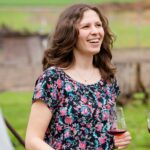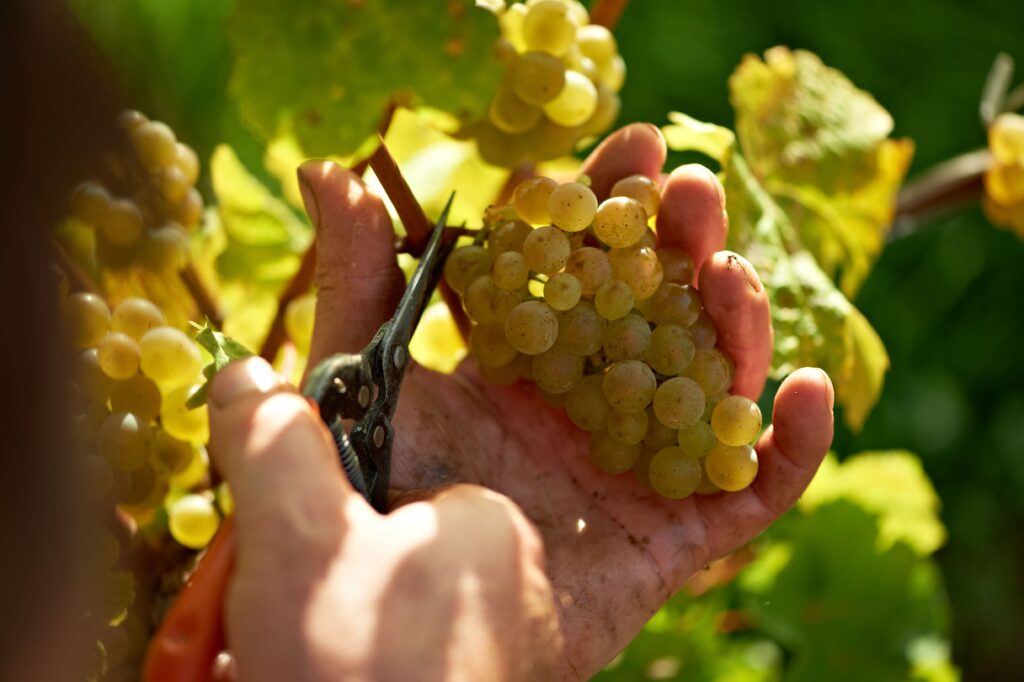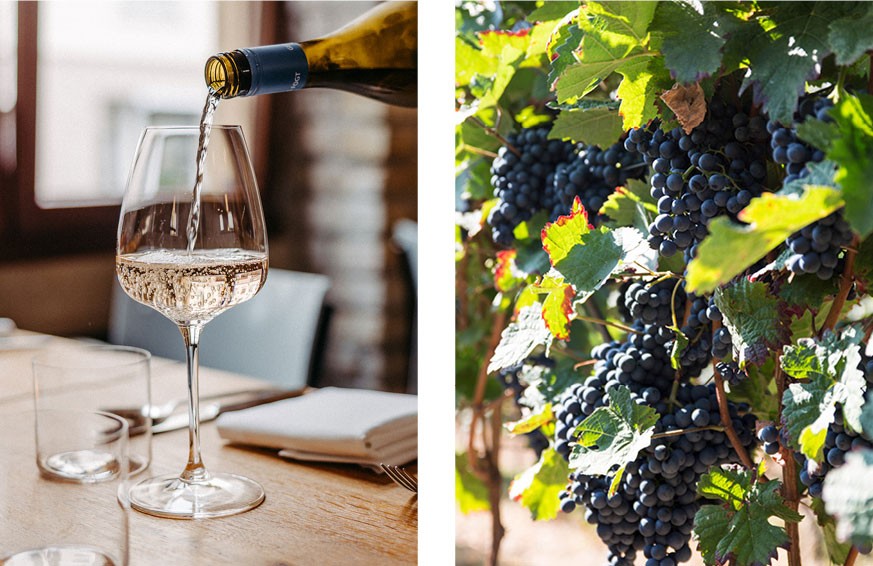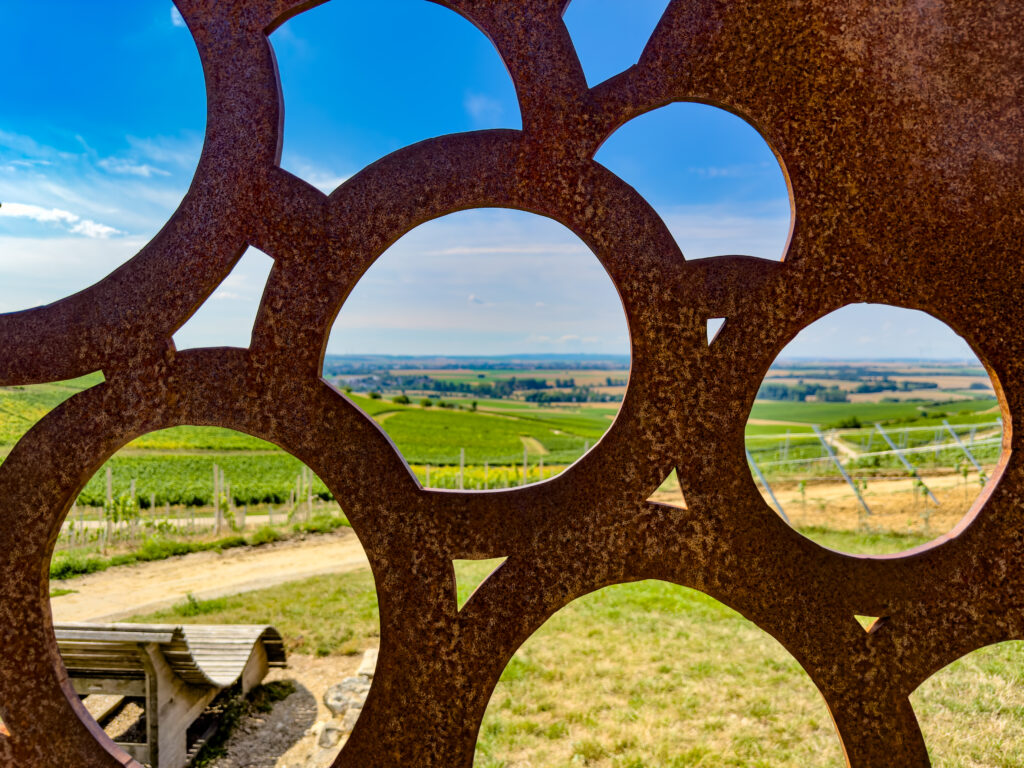Many of us - myself included - often shy away from the extra trip to the butcher, the potato farmer, the vintner, the chicken farm or the baker when shopping. In the supermarket everything is quite comfortably bundled, particularly functionally, even if it must go times fast. But what if that were also possible in the farm store around the corner? And in addition still in higher quality and with better service? These three companies show how weekly shopping can also be successful in the farm store. They are just a few exciting examples of ideas, projects and concepts that are waiting to be discovered all over Rheinhessen.
Organic pig farm in Gau-Bickelheim
Arriving in Gau-Bickelheim, I first face a challenge: a huge construction site on the road leading to my destination today. I briefly observe the people of Gau-Bickelheim, who are obviously used to the hustle and bustle, and decide to also take the direct path between wheel loaders, construction workers and paving stones through. A few more steps and I've arrived and immediately feel transported into a completely different world: inviting, cozy, green, idyllic - the courtyard of the Organic Pig Library. I enter the store and here, too, the construction site is just a topic between boss Maren and a customer. The effects of the construction site are clearly noticeable; fewer customers come to the small farm store, Maren says. But she remains optimistic: "In September, when everything is done, we'll celebrate a second opening party!"
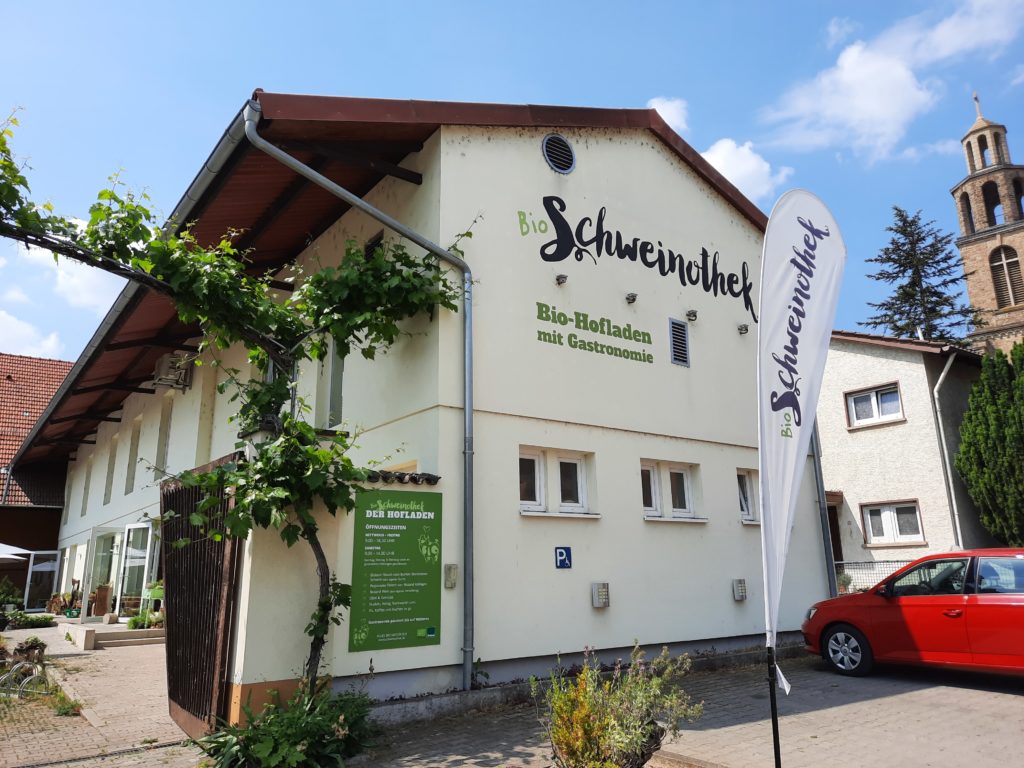
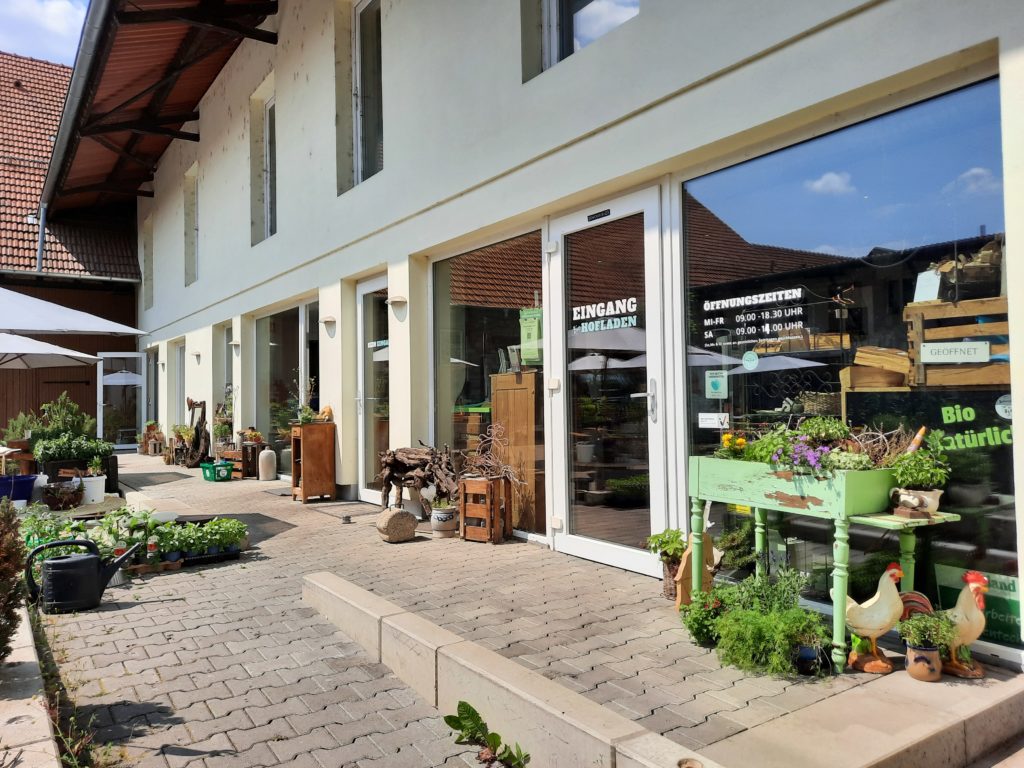
It was this infectious optimism and joie de vivre that enabled and paved the way to Schweinothek in the first place. After a severe stroke of fate, Maren and her husband Bernd questioned and turned their lives upside down: They wanted to create something of value, something that would last. Until then, they had grown and cultivated wine on their own farm. When they thought of a fallow area between two wind turbines, they finally came up with the idea: "Let's just keep a few pigs" - no sooner said than done, Maren and Bernd bought five Bunte Bentheimer, an old, robust breed of pig with large black spots between the pink and long, dense bristles. The aha moment came with the first slaughter. The quality and taste of the meat was exceptional, and family and friends quickly noticed. And what was supposed to be a small sale out of the garage has grown into the cozy and modern farm store today, where Maren stands behind the counter with one of her employees and jokes. In the past, the pigsty was in this place, and behind it in the kitchen was the manure pile, she says.
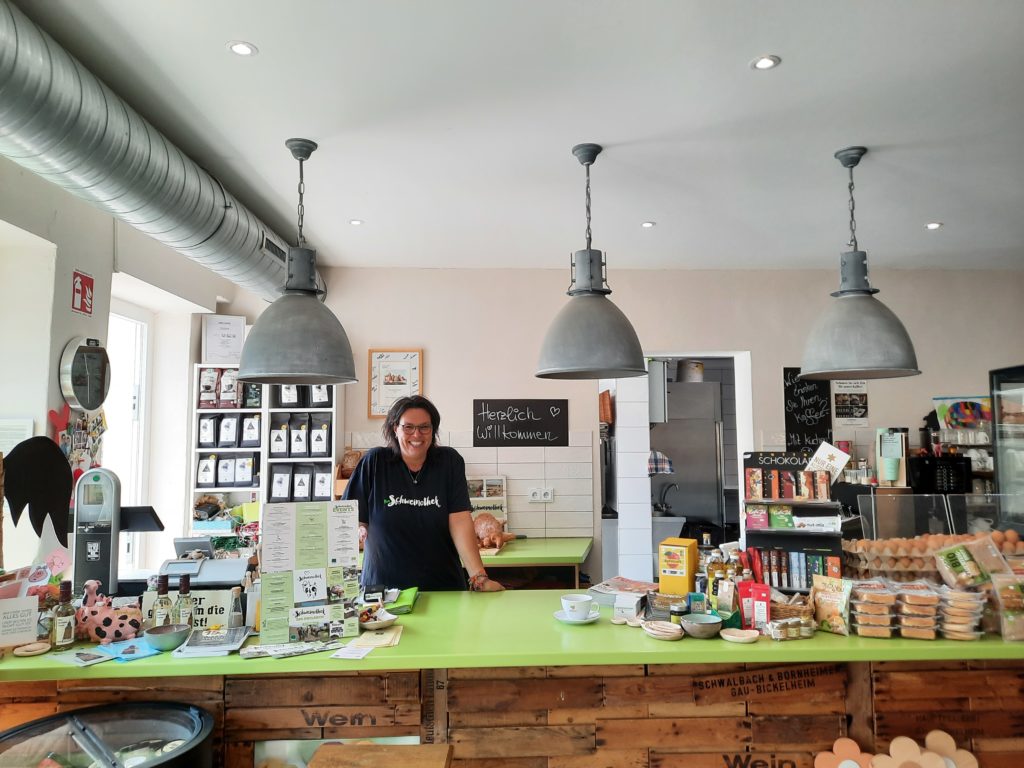
A few of her customers come from Gau-Bickelheim itself, but the majority come from the surrounding communities, and some even travel from Frankfurt or Cologne. The reasons for this are simple: you know what you're getting, you can rely on personal advice, and you can also find an open ear for worries and problems with boss Maren. "Our customers buy from us once and are totally screwed up afterwards," she laughs, referring to the fact that many of her regulars tell her that other meats simply don't taste good to them anymore. Part of the reason for this, she says, is the way the "Dubbewutz" meat products are made here in the Schweinothek - without additives such as nitrite curing salt, sugar or breadcrumbs, always with an eye to the best possible quality. This also applies to the other, diverse products in the range. Everything on the shelves in the store is certified organic and carefully selected. Much of it comes from friendly farms, such as the eggs or the vegetables in the wooden crates, in order to largely avoid going through wholesalers.
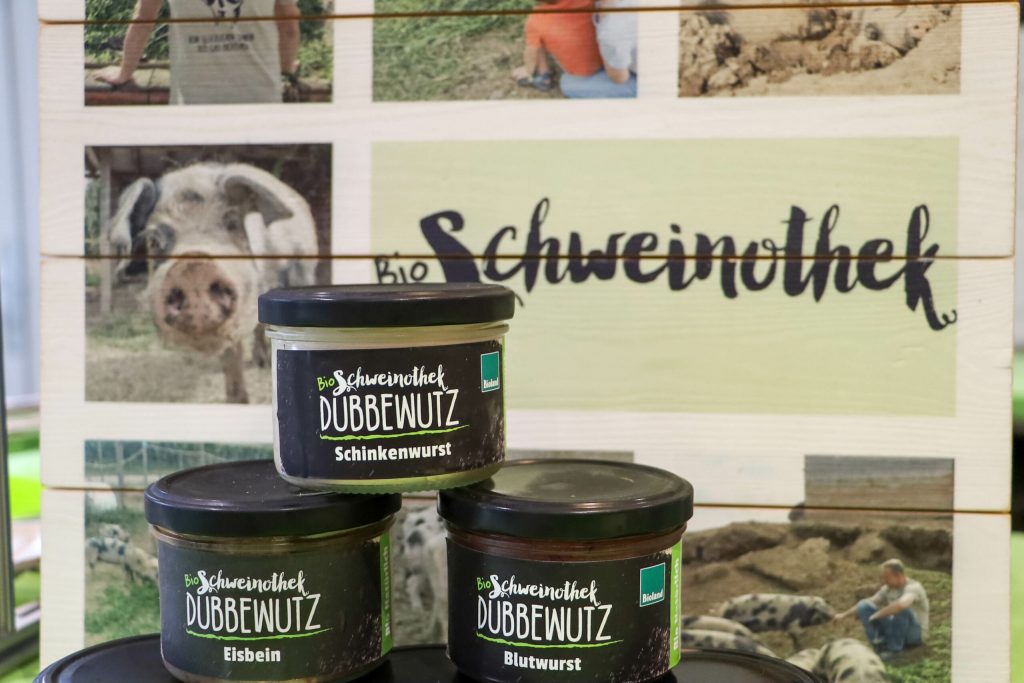
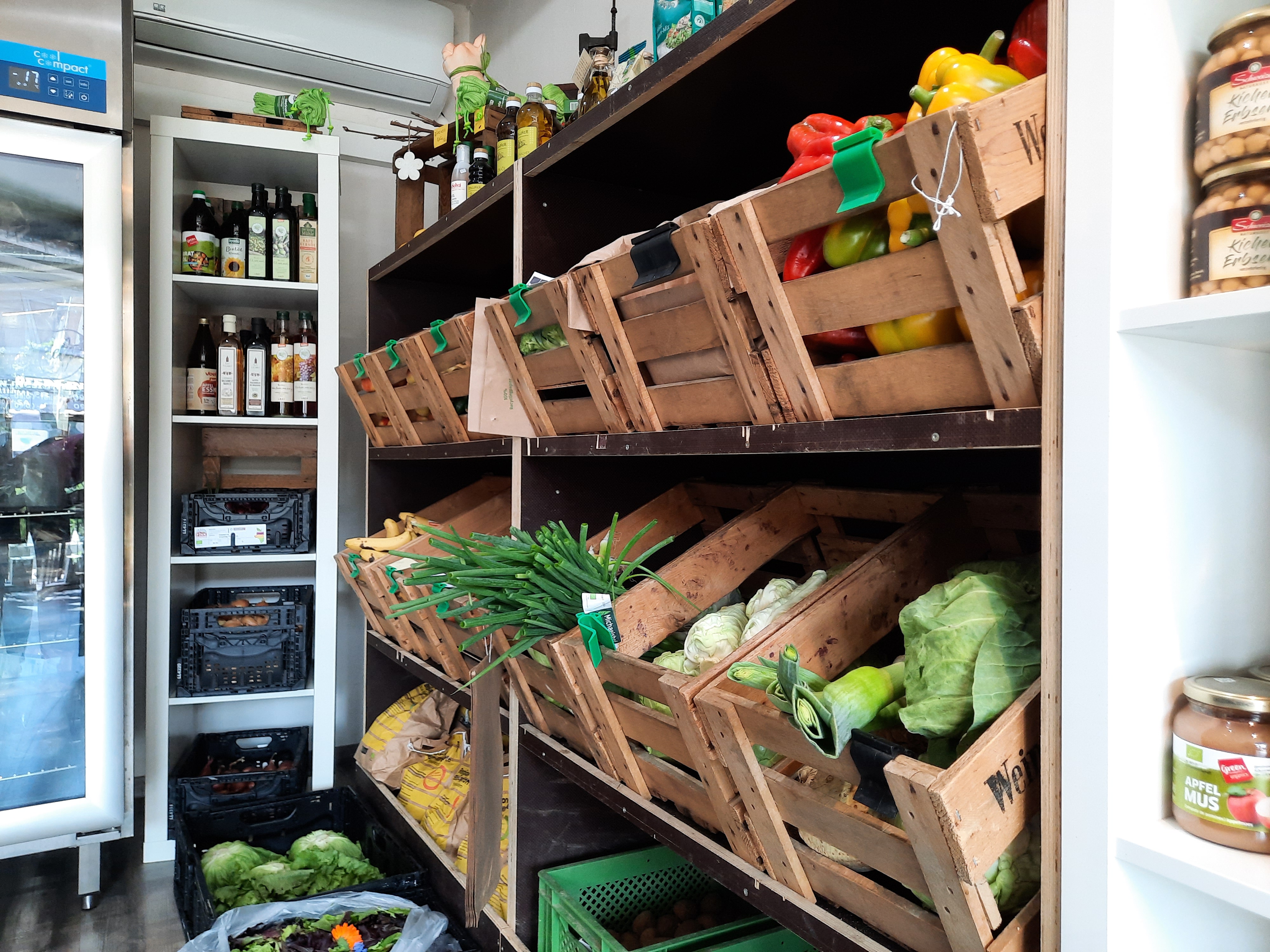
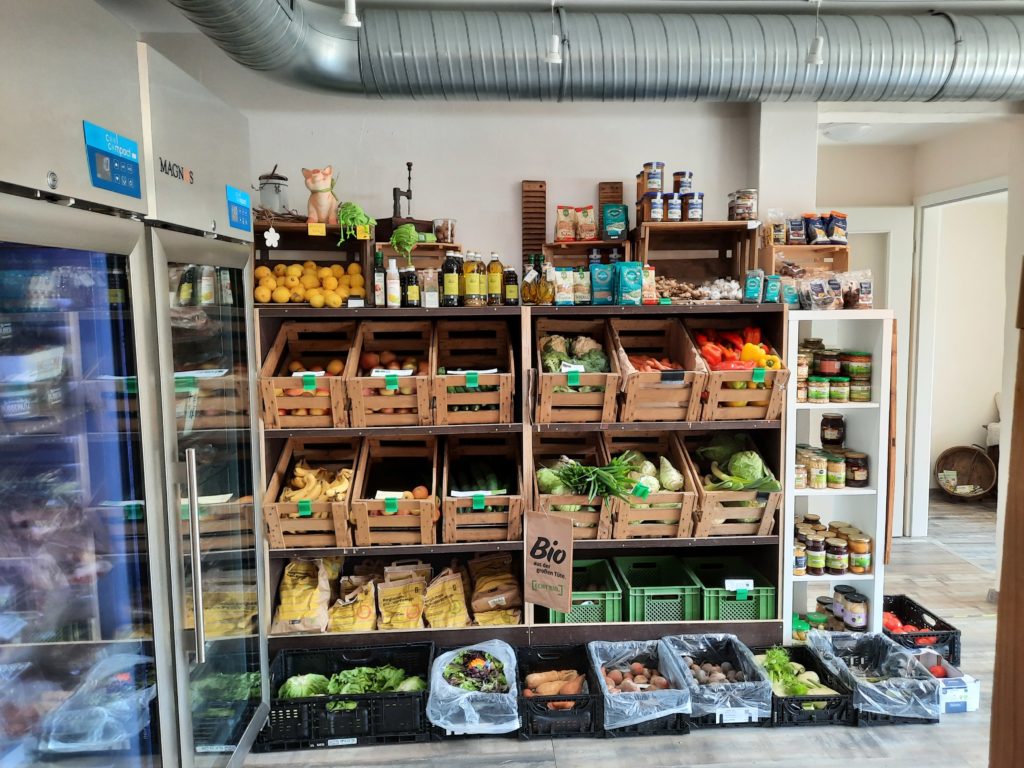
Vegetarians and vegans also get their money's worth, because despite its name, Schweinothek is not a butcher's store, but quite simply sees itself as an organic farm store. Sometimes it's recommendations or tips from customers, sometimes it's their own ideas on how to sensibly expand the range. But: each product is only available in one version and only in the quality that meets the requirements of the Bio-Schweinothek. Full transparency - just like in the glass kitchen, which you can look into from the farm. Here delicious cakes and pies, breakfast platters with the own products and also a warm lunch is prepared here.
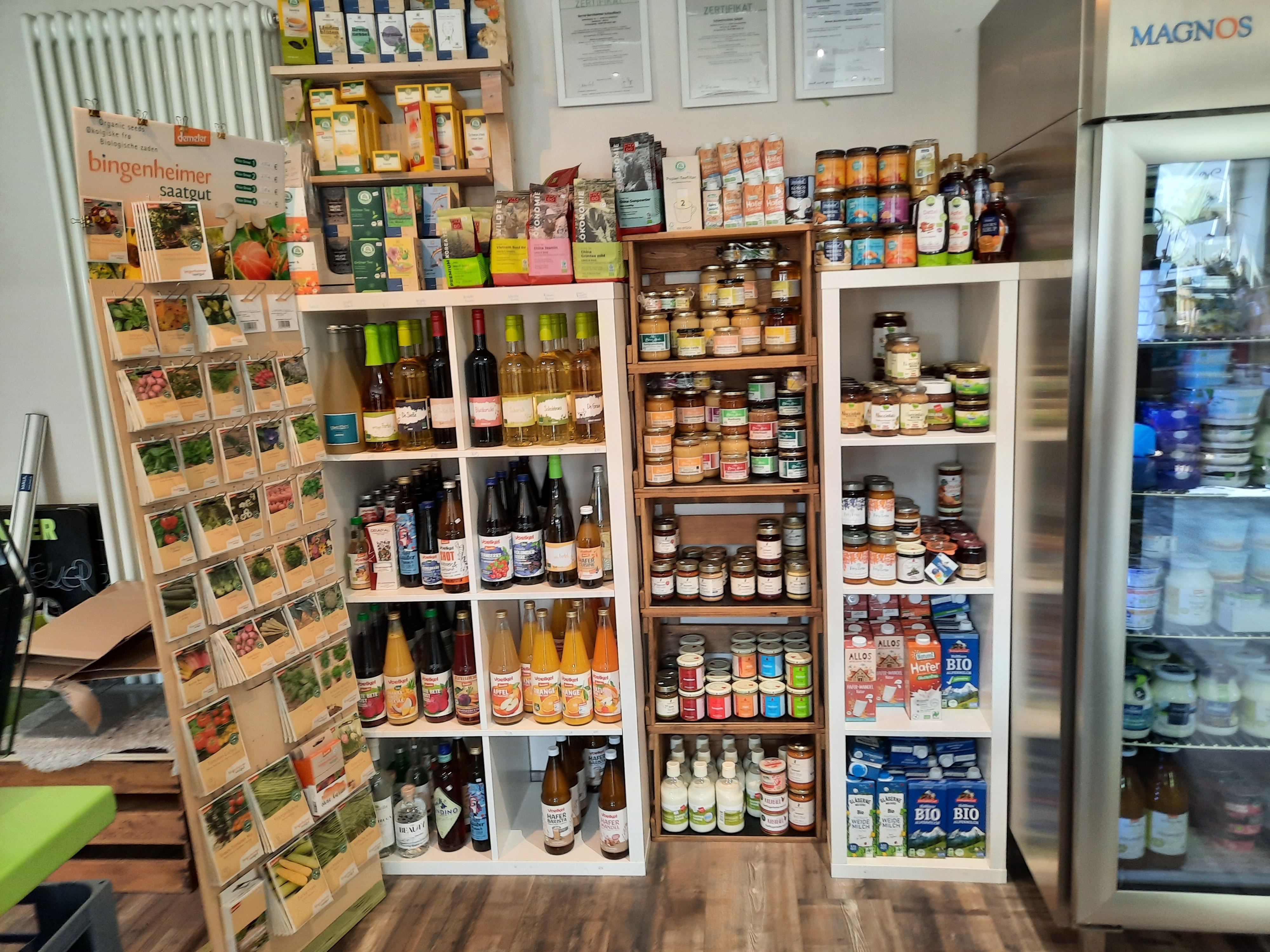
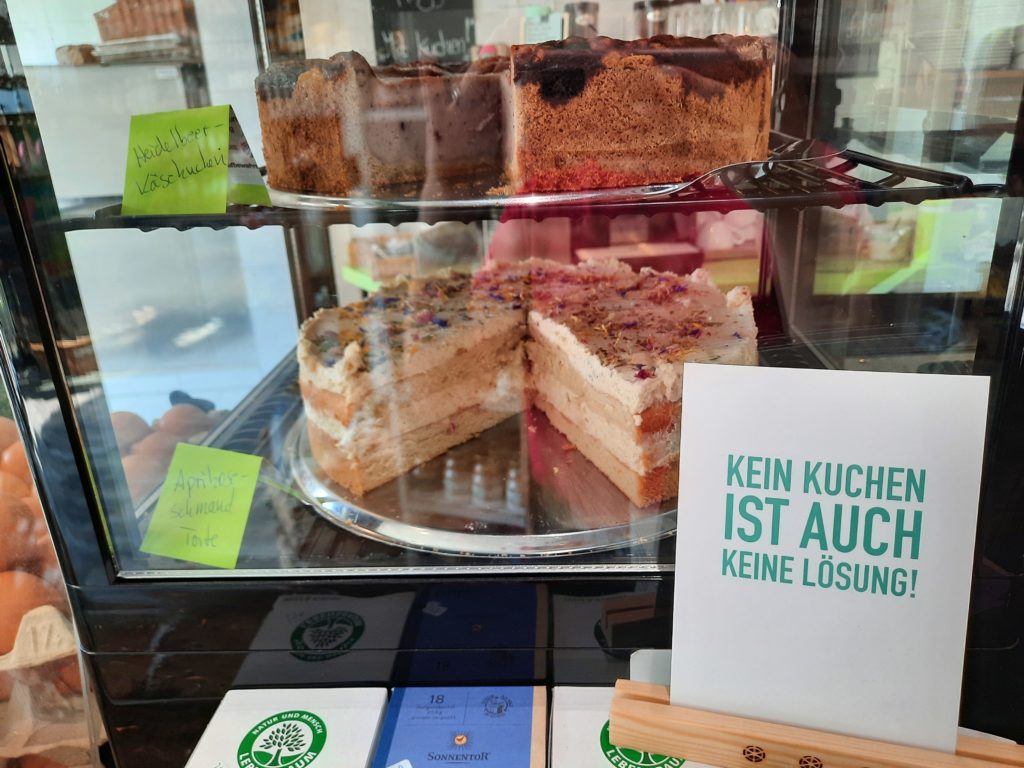
The latest project of the family, between farm festivals, workshops, seminars and tours, is painted green-black and stands on four wheels in the yard: the brand new Bio-Schweinothek burger cart. Everyone here is mighty proud of the new addition and is happy to lend a hand when it's time to go to parties, trade fairs or birthdays. The three children are happy to be part of the business, says Maren, even if their career paths are still open at the moment. The eldest has already completed her training as a farm educator and is thus helping with the "Lernort Bauernhof" project, which aims to give schoolchildren a deeper insight into local agriculture. The family uses this opportunity to highlight organic farming in particular - with success: "The children perceive that our pigs are doing well, and I always hope that we will bring about a better appreciation of all food with the project. After all, today's schoolchildren are our future."
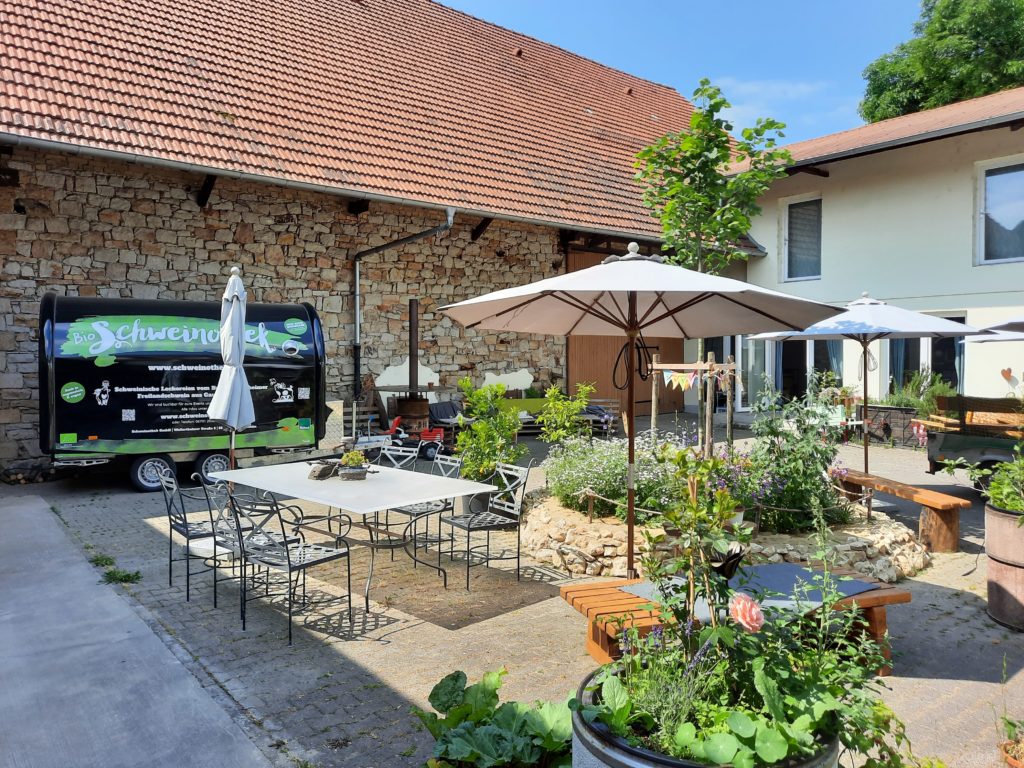
During our conversation, new visions and dreams also keep coming up, which are still waiting to be realized. "We're not running out of ideas," Maren sums up, "even though the Schweinothek was born out of the connection between wine and pigs, we're always evolving, always on the move." After my morning in the Schweinothek, I'm very curious to see what else the Bornheimer-Schwalbachs will surprise us with in the future.
Farm store of the Lebenshilfe Worms in Worms-Hochheim
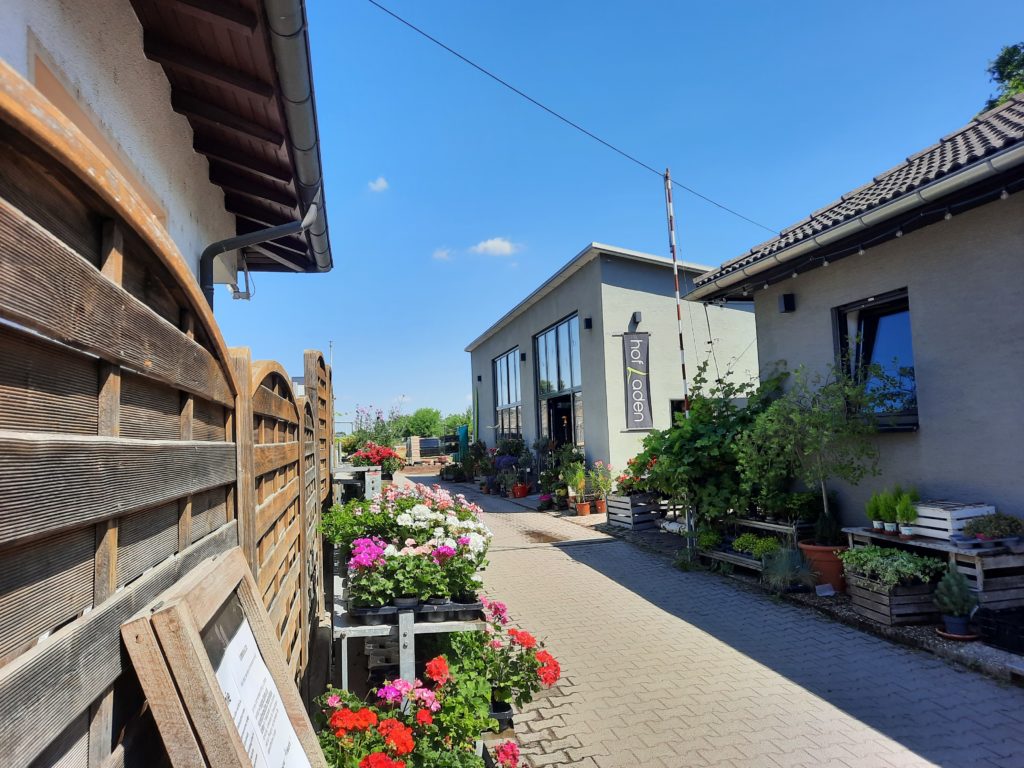
My next destination is up the narrow Pipinstrasse in Worms-Hochheim, because this is where the Farm store of the Lebenshilfe Worms with flower workshop and nursery. In the courtyard, one is greeted by an inviting hustle and bustle; everywhere, people are working, driving, watering - and buying. In the colorful, rustic farm store with its abundance of products, Mrs. Aydin welcomes me. She radiates the same positive and dynamic energy as the whole farm, and before I can even ask a question, she begins to tell me about the history of the farm store. It opened its doors in December 2016 - doors because until then the large delivery trucks of the old Lebenshilfe nursery were still housed here. At first, the products from the company's own workshops, i.e. from the carpentry workshop, the textile workshop, the kitchen or various handicraft groups were to be presented and sold here. However, the customers soon also wanted other things, wanted to become more independent from the large food markets. So it happened that vegetables, fruit, meat and dairy products also found their way onto the shelves.
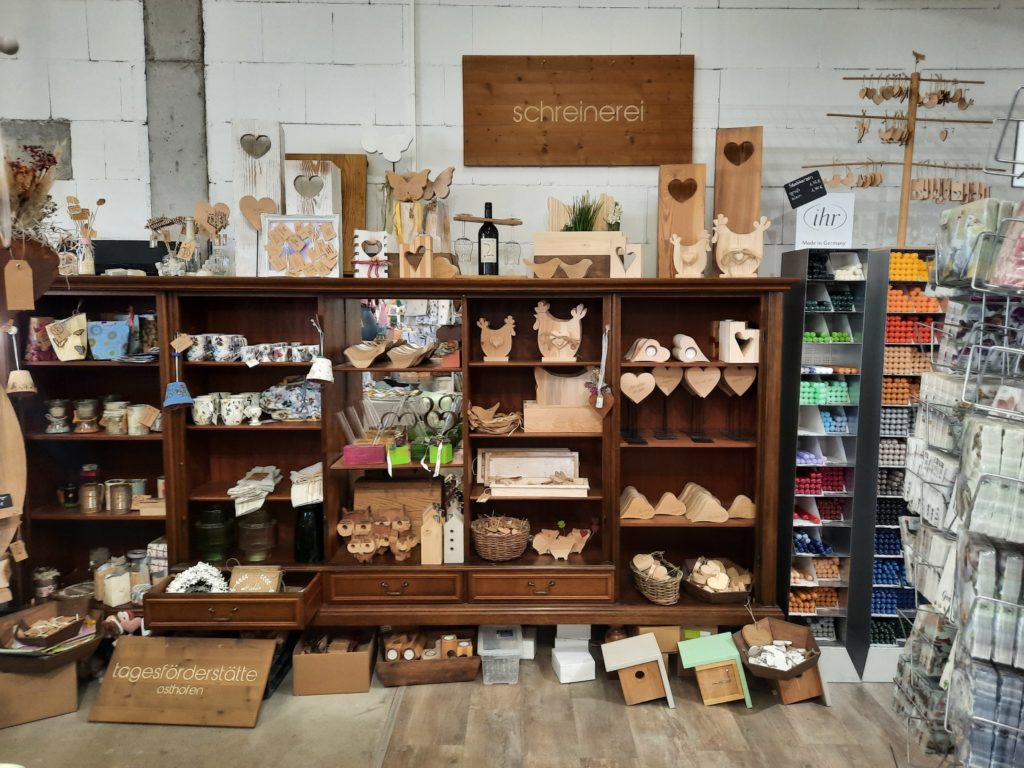
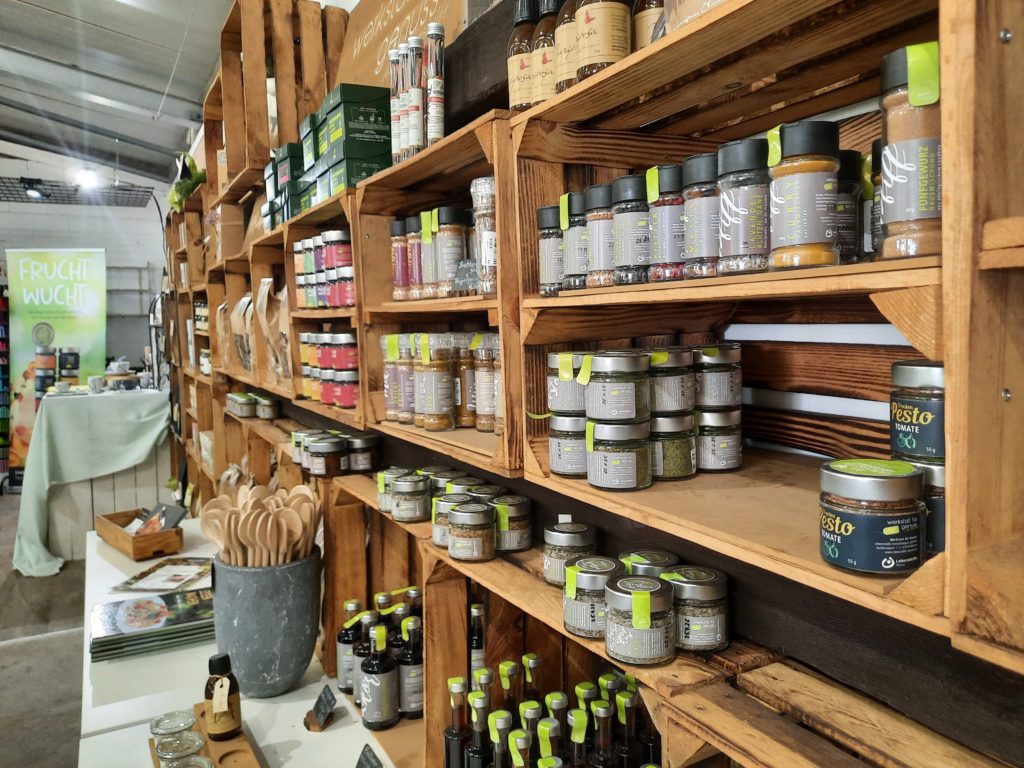
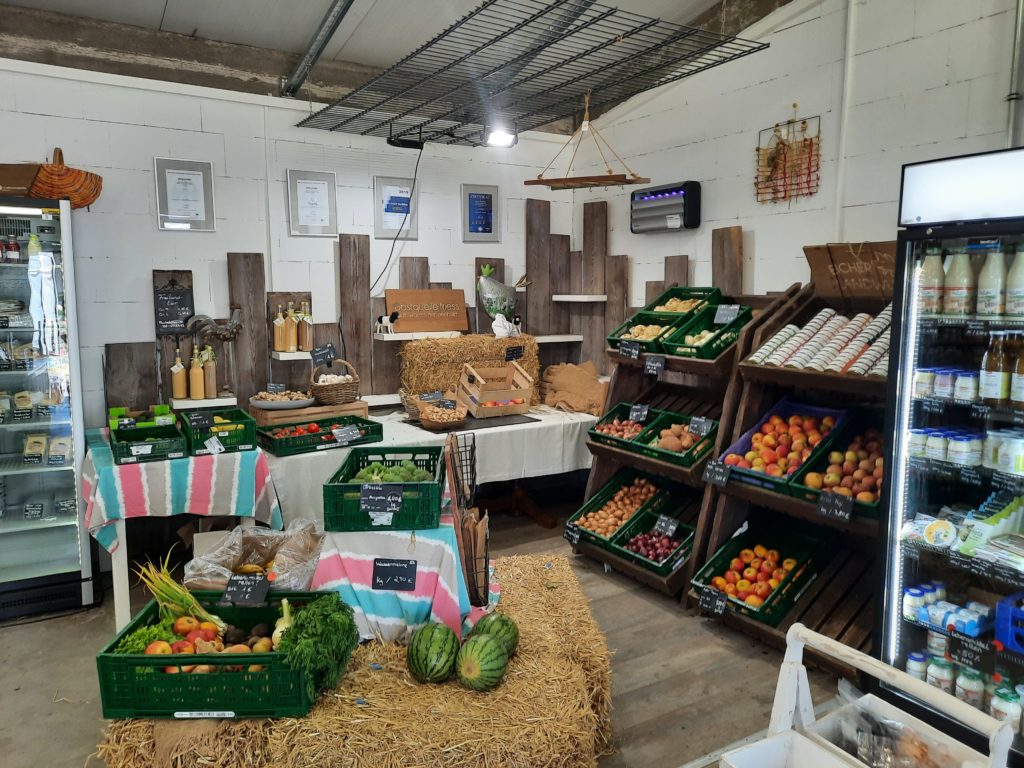
Today, the store holds a wonderful mix of handmade decorative and gift items, lovingly made floristry, high-quality culinary products and fresh food for its guests. The purchased products, such as the candles in a wide variety of shapes and colors, also mostly come from facilities for people with disabilities. "This is close to our hearts just as it is to our customers," explains Ms. Aydin, "which is why, for example, we waited with the bread products until Lebenshilfe in Bad Dürkheim had enough capacity to supply us." Deliveries from Bad Dürkheim with bread products as well as fresh fruit and vegetables always arrive in Worms on Tuesdays and Fridays, the two busiest days for the employees in the farm store. Ms. Aydin reveals: "If something is in short supply, we sometimes take the customers to the nursery next door to see if one of the salads we grow is still available there.
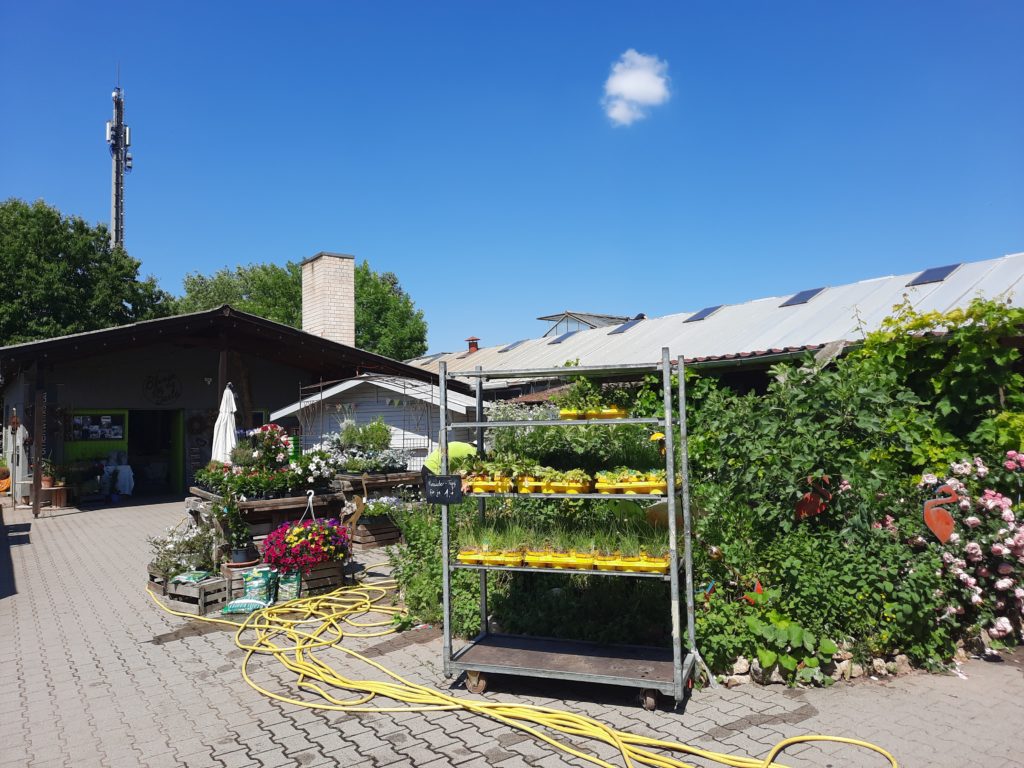
In general, the personal relationship with the customers is very important, as is the attention to detail and the individual care and advice. Just as she is talking about this, a customer comes into the store and is immediately greeted personally. She had seen the sign down the street many times as she drove by, she says, and today she took the opportunity to finally stop in. "It's like that for many people," Ms. Aydin laughs, "we're a hidden paradise up here!". This paradise was discovered by many new customers, especially during the corona pandemic and its accompanying restrictions - almost all of whom are still loyal shoppers today. What motivates most of them to do most of their weekly shopping here: The certainty of contributing to a good cause and supporting people who enjoy their work. As a winemaker's daughter, I naturally can't resist buying two more bottles of wine from Lebenshilfe Bad Dürkheim before saying goodbye to Mrs. Aydin and the farm store.
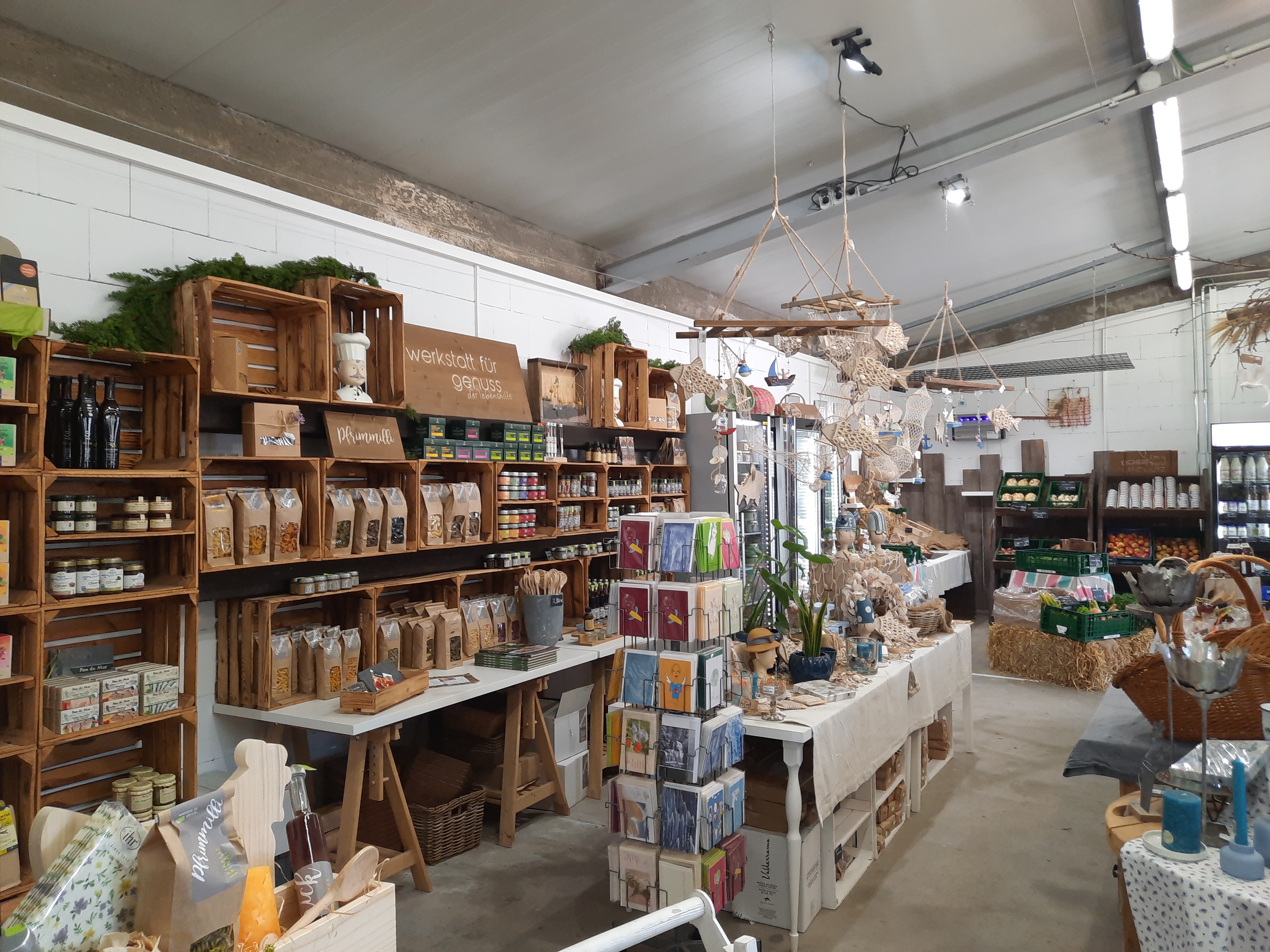
Fruit farm Nickolaus in Mainz-Drais
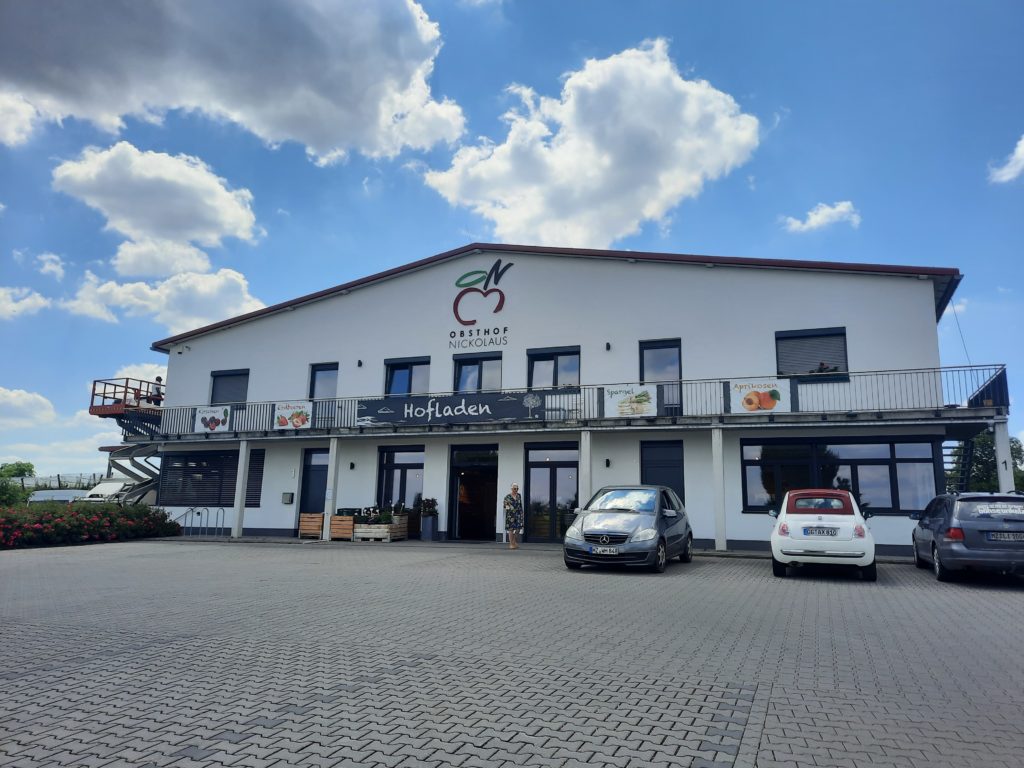
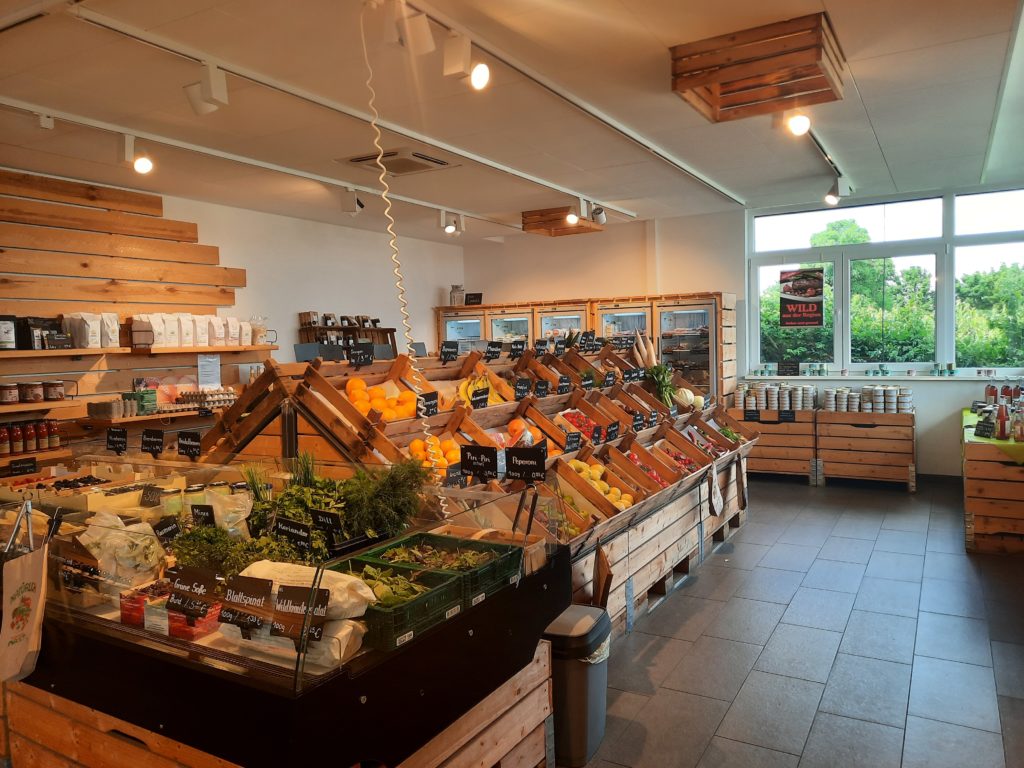
Last I visit the Fruit farm Nickolaus in Draisright on my doorstep, so to speak. I have already been a guest here several times and am very excited to get to know the business even better. The boss, Anja Nickolaus, is just coming out of her office into the store when I walk through the front door. As we greet each other, her gaze wanders to a stack of apple juice containers on the table next to us; a few have already been taken away. With a practiced eye and a few quick moves, she has rearranged the boxes and closed the gaps. "Please excuse me, I couldn't see it that way. My employees already know that..." she smiles and points to the counter. The boss's signature can also be seen in the rest of the store: The shelves, boxes and tables are well sorted and very tidy, yet the overall image is warm and familiar. "Let's go to the office, we can talk better there".
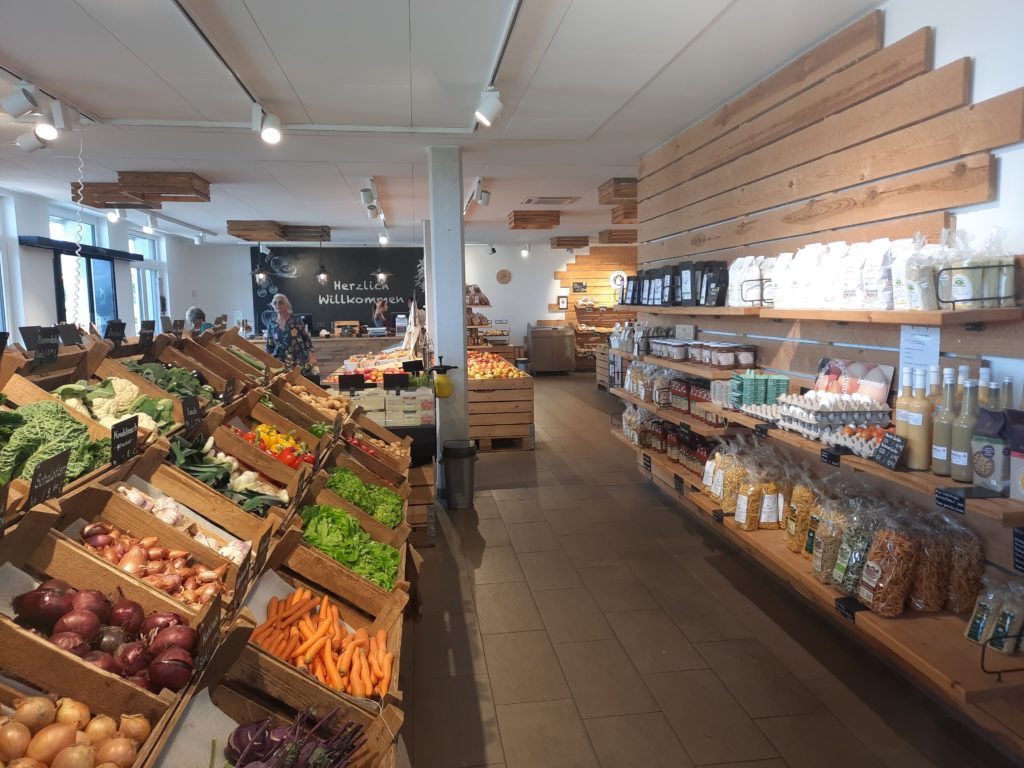
Once in the office, Anja immediately points out the painting of a farmstead - the old, listed company headquarters in the center of Drais. The family's great-grandmother already had a small market stall here and supplied friends and neighbors with all kinds of fresh produce directly from the farm. At that time, the family still relied on many branches of the business: Farming, fruit, livestock - classic Rhine-Hessian. With the next generation, the course was set for the future, they gradually specialized in the cultivation of fruit. Today, Anja and Thomas focus mainly on pome and stone fruit, supply food markets and are also part of a cooperative. In the summer of 2017, they were finally able to fulfill their dream of their own direct marketing in the form of a large new storage and machine hall with an attached office and farm store.
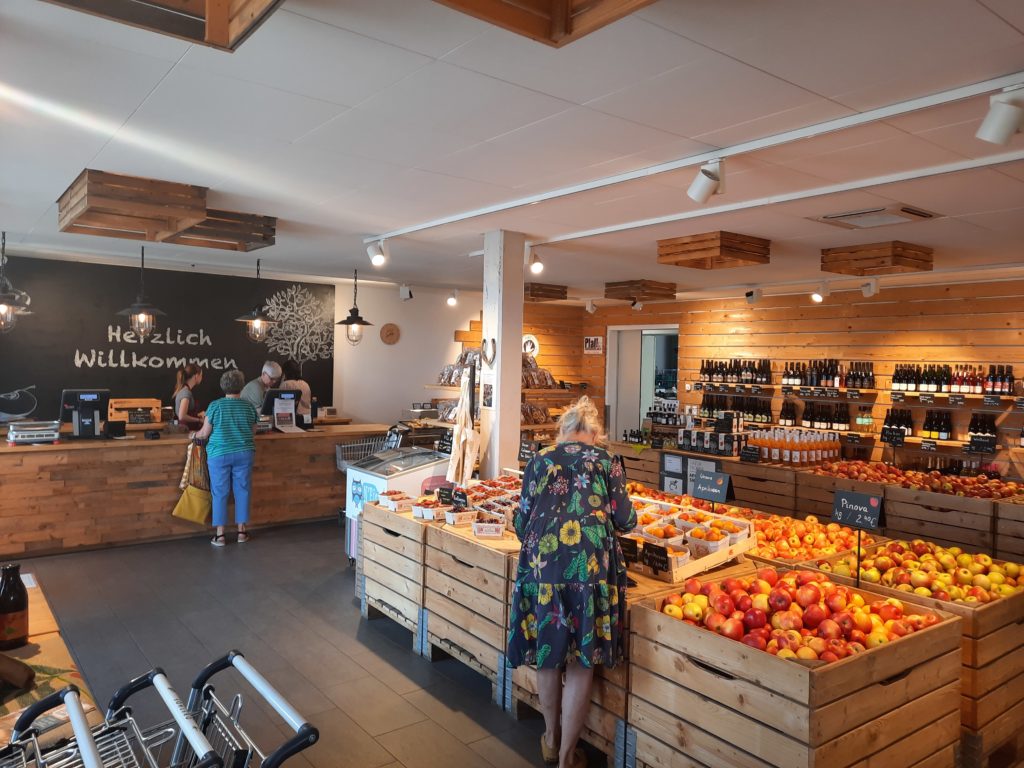
Since then, they have been open year-round, with only a few days off each year. "The whole family is used to a six-day week, or now in the harvest season, a seven-day week, but even so, we need a breather sometimes," Anja reports about life as a self-employed person. But fortunately, the couple can rely on a strong environment, first and foremost the sales team that has been working together for years and holds the fort at the customer counter. "My basic team has actually been with me since the beginning, and over the years real friendships have developed. Sometimes it gets so emotional that I have to remind the girls that we still work together here," says the boss with a wink. The physical well-being of the three generations is usually taken care of by grandma, Anja's mother-in-law, who cooks for everyone every day - a real family business.
When it comes to the selection of purchased products in the store, the company relies primarily on friendly farms from the surrounding area, but it is also happy to respond to recommendations and requests from customers. For example, the country potato chips from Farmer Jo or the ready-made salad dressing from a local chef found their way into the store. Even the pickled cucumbers have their own story: "Our grandfather went to the spa a few years ago and met a cucumber farmer from Bavaria there. They got along so well, and as a parting gift he ended up giving him a jar of his own pickled cucumbers. After we had tasted them in a large family circle, it was clear: "If we ever open our farm store, the cucumbers can not be missing! This large selection in the store and the cordial service are particularly appreciated by families with children, commuters benefit especially from the convenient location directly on the L427 - and most have the ambition to do all their shopping here. This pleases boss Anja: "Our own goal has always been that you can get everything for the Sunday coffee table here".
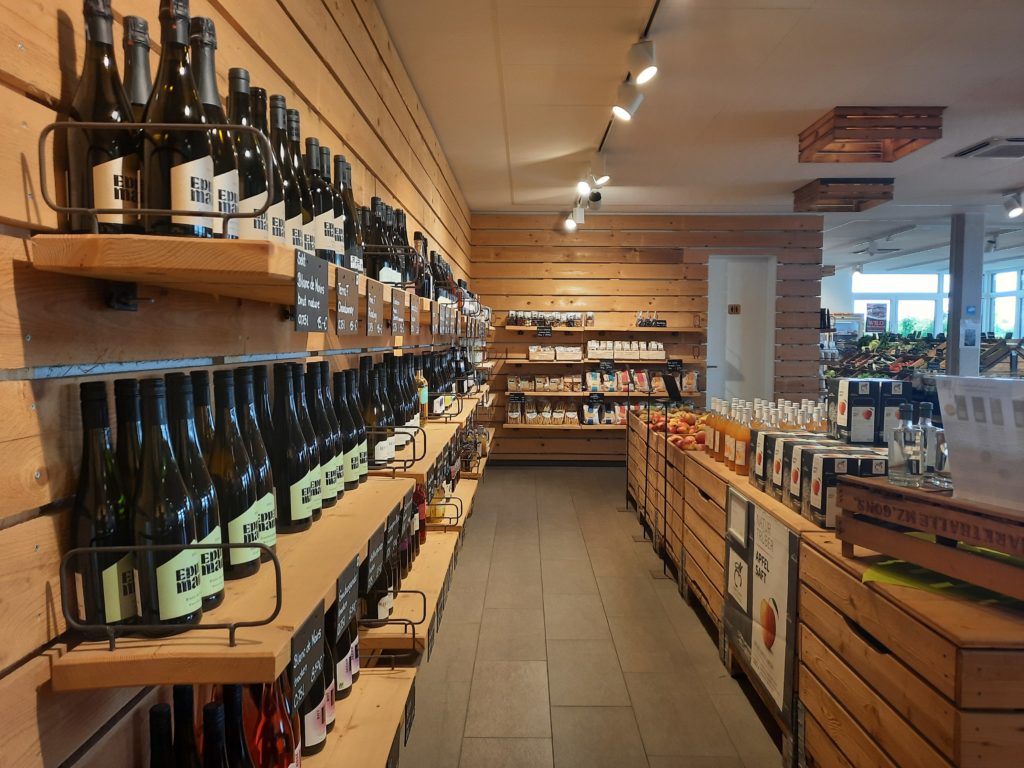
Thomas Nickolaus now joins our conversation. He tells us about an unusual attraction on the farm: self-picking. Customers can pick their own cherries and apricots from the plantations around the farm. This leads to a better appreciation of the products, Thomas reports, and also offers the opportunity to talk more intensively about the work in the orchards. "That's when you do a little fruit-growing consulting for the allotment gardener at home on the side. But these are also our most valuable customers. The ones who know from their own experience the work that goes on behind a beautiful, healthy apple."
When it comes to the question of what the future will bring, Anja and Thomas are in agreement: they want to make the business fit for the future so that they can pass it on to their children with a clear conscience. "But we want our children to have the freedom to decide wholeheartedly for the business or against it. Only then can something like this go well," Thomas points out. As a farewell gift, I receive a large crate of field-fresh cherries and apricots and a few apples - just the right nourishment for the nerves when you get to report on three such great farm stores.
More information about regional products and direct marketers is available at on our website.
